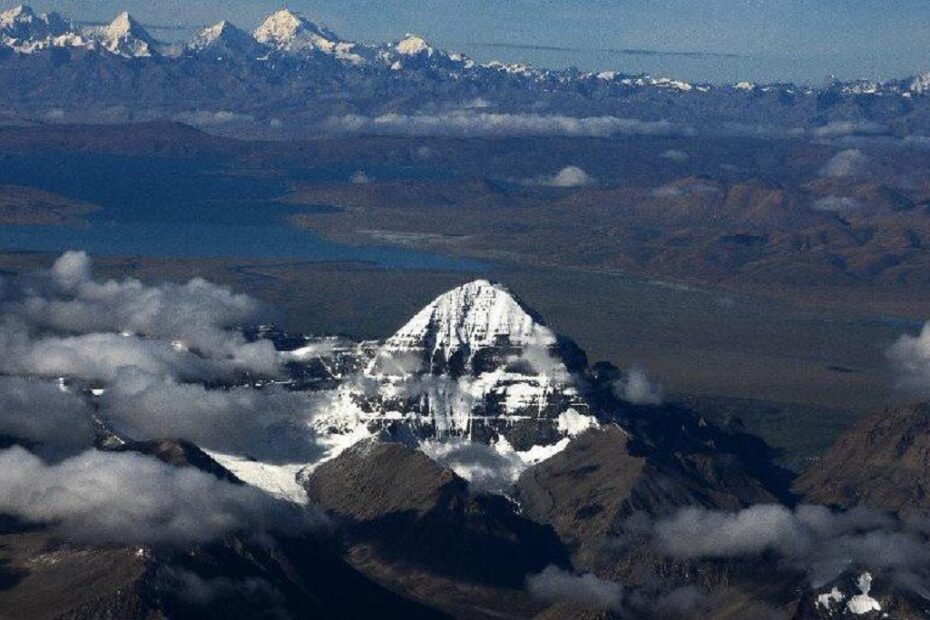Towering over the Trans-Himalayan region, Mount Kailash reigns as a majestic peak, captivating hearts and imaginations for millennia. For Hindus, it serves as the hallowed abode of Lord Shiva, the transformative deity of destruction and rebirth. This sacred mountain transcends religious boundaries, attracting pilgrims, adventurers, and spiritual seekers alike, all drawn to its mystical allure. From ancient myths to personal experiences of profound peace, Mount Kailash continues to enthrall, embodying the enduring power of faith and the search for meaning.
Mythology and Symbolism: Mount Kailash
Legends abound, painting vivid pictures of Shiva dwelling upon this sacred mountain. The Shiva Purana tells us that he resides with his consort, Parvati, and their sons, Ganesha and Kartikeya, surrounded by celestial beings and sages. In the epic Ramayana, the demon king Ravana attempts to uproot Kailash in his arrogance, only to be subdued by Shiva’s immense power. These stories symbolize the triumph of good over evil and the transformative power that resides within Lord Shiva.
The Mountain as Manifestation
Kailash itself is imbued with symbolism. Its four faces are said to represent the four elements – earth, water, fire, and air – signifying Shiva’s mastery over creation. The mountain’s pyramidal shape resembles a Shiva Linga, the iconic representation of his cosmic energy. For pilgrims completing the arduous Kailash Parikrama, a circumambulation of the mountain, each step takes them closer to enlightenment and spiritual liberation.
Beyond Religion: Lord Shiva at Kailash
While revered by Hindus, Kailash transcends religious boundaries. Jains believe it to be the site where their first leader attained enlightenment. Buddhists consider it the navel of the universe, radiating spiritual energy. Tibetan followers of Bon see it as the abode of the sky goddess Sipaimen. This convergence of beliefs underscores the mountain’s universal appeal as a symbol of spiritual power and peace.
The Enduring Legacy
Even beyond religious interpretations, Mount Kailash attracts adventurers, mountaineers, and curious explorers. Its remoteness and imposing beauty fuel myths of extraterrestrial connections and hidden civilizations. Yet, the true magic lies in the personal experiences of pilgrims and trekkers. Many report feelings of profound peace, heightened awareness, and a connection to something beyond themselves.
Whether a pilgrim seeking blessings, an adventurer testing their limits, or a curious observer, Mount Kailash remains a powerful force. Lord Shiva’s presence, be it literal or symbolic, imbues the mountain with an energy that has drawn people for centuries. It is a place where myths intersect with reality, and where the search for meaning transcends the boundaries of belief.

